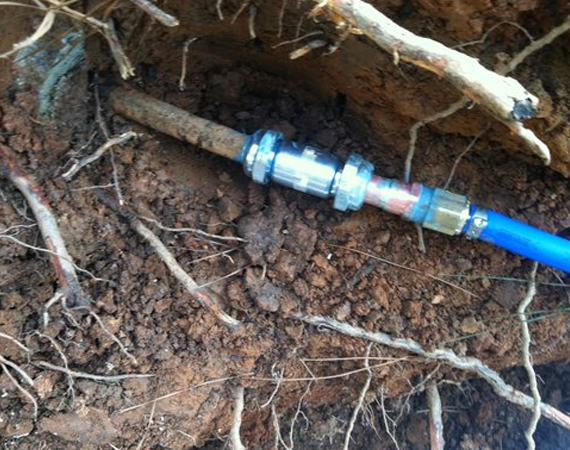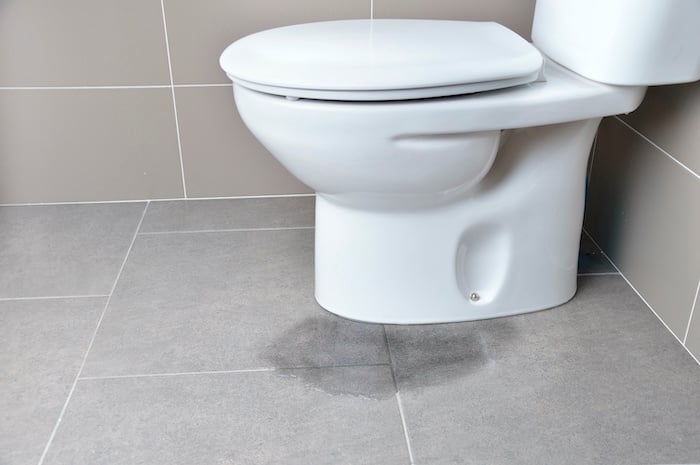The 5 Major Factors for Water Leaks
The 5 Major Factors for Water Leaks
Blog Article
Were you trying to locate suggestions around How to Find and Prevent Water Leaks in Your Home?

"Be cautious of little expenses. A tiny leak will sink a great ship." - Benjamin Franklin.
He couldn't have actually been a lot more ideal since water leakages in our homes result in a waste of resources, raising our water expenses. This rise could seem negligible at first, it can lead to significant expenditures that can break your bank. Aside from an increase in expenses, water leaks also create undesirable natural development, architectural damage, and even electrical threats.
If you have a water leak isn't constantly very easy due to being unable to see many of the pipework in your house, figuring out. If you have had a boost in your water expenses recently, observed water discolorations on walls and also ceilings, scented lousy odor, etc. You may intend to consider requesting plumbing services to get it checked out.
There are numerous root causes of water leaks, as well as we have assembled the usual reasons below. Check to see if you have actually had relevant issues in your house lately.
Compromised pipeline joints
Pipeline joints are the components of our plumbing system where the pipes attach. It is vital to keep in mind that even though pipelines are created to withstand pressure as well as last for a while, they weren't made to last for life; therefore, they would weaken over time. A typical sign of damaged pipe joints is extreme sound from taps.
High water stress
You observed your home water pressure is more than normal however after that, why should you care? It's out of your control.
It would be best if you cared because your average water pressure must be 60 Psi (per square inch) and although your home's plumbing system is designed to hold up against 80 Psi. A boost in water pressure can place a stress on your house pipes and lead to cracks, or worse, burst pipes. Get in touch with a professional concerning managing it if you ever before see that your home water pressure is greater than common.
Rust
As your pipework grows older, it obtains weaker and more at risk to rust after the regular flow of water through them, which can gnaw at pipes as well as cause fractures. A noticeable indicator of deterioration in your house plumbing system is staining and although this could be hard to find as a result of many pipelines hidden away. We encourage doing a frequent check-up every few years and change pipes once they are old to make certain a sound plumbing system
Blocked drains pipes
Food particles, dirt, and grease can cause blocked drains as well as obstruct the passage of water in and out of your sink. Enhanced pressure within the gutters can cause an overflow and also end up cracking or bursting pipes if undealt with. To stay clear of clogged drains pipes in your home, we suggest you to stay clear of pouring bits down the drain as well as regular cleaning of sinks.
Busted seals
One more root cause of water leakages in residences is damaged seals of residence devices that use water, e.g., a dish washer. When such appliances are mounted, seals are installed around water connectors for simple passage of water via the equipment. A busted seal can cause leak of water when in usage.
With little or no expertise of plumbing, understanding your home's plumbing system adequate to take care of some of these issues (without effect) can be a trouble. Get in touch with plumbing specialists in Pittsburgh, Providence, Rochester, as well as environ today, as well as they'll make those problems disappear.
He could not have been a lot more best because water leaks in our residences result in a waste of resources, enhancing our water bills. If you have had a rise in your water expenses recently, noticed water discolorations on walls and ceilings, scented lousy smell, and so on. An increase in water pressure can put a pressure on your home pipes and also lead to splits, or even worse, ruptured pipes. One more cause of water leakages in residences is damaged seals of home appliances that utilize water, e.g., a dishwashing machine. When such devices are set up, seals are set up around water adapters for very easy passage of water through the maker.
5 TIPS IN DETECTING A WATER LEAK IN YOUR HOUSE
Water leaks can be hard to find in your home, yet they can be so common. We rely on water every day in our home, which is why a leak can cause big problems. By detecting them early, you can save money and further damage, getting the problem fixed as soon as possible. Here are 5 tips to help you detect a water leak in your home, so you can contact a plumber straight away and get the issue sorted.
Check your water meter
Many people underestimate the value of the water meter in their home. It can be one of the best ways to tell if you have a leak early on, so you can get on top of it before issues start arising. Start by turning off all the water in your home: taps, washing machine, dishwasher, etc. Now take a look at the meter – if it’s still changing with everything turned off, it’s likely you have a fast-flowing leak that you need to get on top of straight away. If nothing changes, then leave your meter for an hour or two and come back to it. Did it change in this time? It’s likely you have a slower leak, which isn’t as urgent but still handy to get fixed so it doesn’t become a bigger problem.
Keep an eye on your bill
Another good way to detect a leak in your home is by keeping an eye on your water bill. It helps if you have a past bill from the same period of time. You can compare like for like and determine whether your water usage has increased significantly. If it has, there may be a leak in your system that you haven’t picked up before. A professional plumber can check through all of your pipes and determine where it is coming from.
Look for damage
If you have a leak inside your home, you will notice damage over time. Take a look at your showers and bathtubs and note whether any of the tiles surrounding the area seem to be discoloured or damaged in any way. There may be water stains, mould or peeling material that has resulted from a build up of moisture over time. Make sure you take a look under sinks at the back of cupboards that don’t get accessed regularly. This is where damage can go unnoticed and build up over periods of time.

Do you appreciate reading up on Where to Find Water Leaks? Try leaving a short review further down. We will be pleased to hear your opinions about this write up. In hopes that you come back again before long. If you please take the opportunity to distribute this page if you enjoyed it. Thank-you for going through it.
Visit Site Report this page